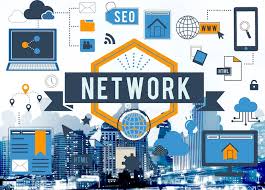
Scrolllers: The Modern Digital Scrolling Revolution
In the vast universe of the internet, new platforms, trends, and communities are constantly being created. One of the most recent terms to gain attention among online users is “Scrolllers.” At first glance, the word sounds like a play on “scrollers” — people who scroll endlessly through content. And in many ways, that’s exactly what Scrolllers represents: the modern habit of consuming infinite streams of digital content. But beyond that, it has also become associated with specific platforms, user experiences, and digital behaviors that define the 21st-century internet.
In this post, we’ll explore what Scrolllers is, how it has become a symbol of digital engagement, the psychology behind endless scrolling, and how content creators, developers, and businesses are leveraging this trend to shape the future of online interaction.
What Is Scrolllers?
The term Scrolllers can refer to multiple intertwined ideas:
- The Scrolling Culture:
Scrolllers are essentially today’s internet users who spend hours scrolling through social media feeds, news platforms, or content discovery websites like Reddit, Instagram, TikTok, or X (formerly Twitter). They are the modern digital citizens — constantly consuming bite-sized media, memes, videos, and images. - A Platform or App:
The word “Scrolllers” has also been adopted as a name for websites and mobile applications that provide infinite scroll experiences, particularly for image and video discovery. Some platforms branded as “Scrolllers” aggregate visual content from multiple sources — allowing users to browse endlessly without switching tabs or reloading pages. - A Concept of Engagement:
More philosophically, Scrolllers represents a shift in how humans interact with information. Instead of deliberate searching, users now engage in serendipitous discovery — content finds them, not the other way around. This form of passive consumption has profound effects on attention spans, marketing, and even mental health.
The Rise of the Scrolling Culture
The Beginning of Infinite Scroll
The concept of infinite scroll was first popularized in the late 2000s by web developer Aza Raskin, who invented it as a way to make browsing smoother. Instead of clicking “Next Page,” users could simply scroll, and new content would load automatically. It was efficient, seamless, and addictive.
However, Raskin later expressed regret over his creation, realizing how it had fueled digital addiction. Infinite scroll transformed the web into a bottomless pit of stimulation — and users into Scrolllers.
Social Media’s Role
Platforms like Facebook, Instagram, Reddit, and TikTok perfected the art of endless scrolling. Their algorithms learned user preferences and served hyper-relevant content to keep people engaged. Soon, scrolling became not just an activity but a lifestyle — an escape, a habit, and even a source of comfort for millions.
Today, “Scrolllers” are everywhere — in coffee shops, on public transport, at home in bed — all engaged in the same ritual: scrolling endlessly through curated feeds of entertainment and information.
Why We Become Scrolllers: The Psychology Behind the Scroll
Why do we scroll so much? What makes infinite feeds so irresistible?
- The Dopamine Effect:
Each time you see something new or surprising, your brain releases a small burst of dopamine. This “reward” chemical makes you feel good and keeps you craving more. Infinite scrolling provides a continuous stream of novelty, feeding that dopamine loop endlessly. - Fear of Missing Out (FOMO):
The internet moves fast, and no one wants to feel out of the loop. Scrolllers constantly refresh their feeds to stay updated — whether it’s breaking news, memes, or social updates. - Low Cognitive Load:
Scrolling doesn’t require deep thinking. It’s easy, relaxing, and accessible anytime. In stressful or boring moments, scrolling offers a mental escape. - Algorithmic Seduction:
Algorithms are designed to maximize engagement. They learn what you like, when you scroll, and how long you pause on a post. The result? A feed tailored specifically to keep you hooked.
In short, Scrolllers are both the product and the participants of an algorithm-driven culture of consumption.
Scrolllers as a Platform: Content Aggregation and Discovery
Some developers and companies have taken the Scrolllers concept further by creating dedicated scrolling platforms. These websites or apps allow users to browse curated visual content — often aggregated from social networks or community forums.
Features of Scrolllers-Like Platforms
- Endless Image and Video Feeds:
Content loads continuously as you scroll, similar to Reddit or Instagram explore pages. - Content Categories:
Users can choose categories such as nature, photography, memes, technology, or art. - AI-Powered Recommendations:
AI analyzes viewing behavior to recommend personalized content streams. - Minimalist Design:
Most Scrolllers interfaces are clean and focused solely on visuals — allowing uninterrupted browsing. - Mobile Optimization:
Since most scrolling happens on smartphones, these platforms are optimized for touch navigation and responsive design.
These digital ecosystems thrive on simplicity — the joy of discovering content without thinking too much. That’s the magic that keeps Scrolllers coming back for more.
The Impact of Scrolllers on Modern Society
The rise of Scrolllers has reshaped multiple aspects of life — from media consumption to marketing and even mental health.
1. Information Overload
While scrolling offers convenience, it also bombards users with constant information. The human brain isn’t designed to process endless streams of data, leading to cognitive fatigue and shorter attention spans.
2. The Decline of Deep Reading
Books, articles, and long-form journalism have taken a back seat. Scrolllers prefer quick, snackable content — memes, short videos, or infographics. This shift impacts education, critical thinking, and even creativity.
3. Marketing and Business Adaptation
Marketers have learned to speak the language of Scrolllers. Brands now create micro-content designed to capture attention in under three seconds. The success of platforms like TikTok and Instagram Reels proves that short-form storytelling is the new norm.
4. The Scroll Economy
Every second you spend scrolling generates value — for tech companies, advertisers, and content creators. Attention is now the world’s most valuable currency, and Scrolllers are its biggest contributors.
5. Mental Health Considerations
Excessive scrolling can lead to doomscrolling, a phenomenon where users compulsively consume negative news, leading to anxiety or depression. However, mindful scrolling — consuming positive or creative content — can have the opposite effect.
How to Be a Conscious Scrolller
Being a Scrolller doesn’t have to be negative. The key is balance and awareness. Here are some strategies to stay mindful in the scrolling age:
- Set Time Limits:
Use built-in screen time trackers to limit your daily social media usage. - Curate Your Feed:
Follow accounts that inspire, educate, or uplift you instead of draining your energy. - Take Scroll Breaks:
Give your brain downtime by engaging in offline activities like reading or exercise. - Engage Intentionally:
Don’t just consume — interact meaningfully with content that adds value. - Use Discovery Platforms Wisely:
Platforms like Scrolllers can be great for creativity and exploration — but be mindful of how much time you spend.
The Future of Scrolllers
As AI continues to evolve, the scrolling experience will only become more personalized, immersive, and perhaps even augmented. Imagine future Scrolllers platforms powered by virtual reality (VR) or mixed reality (MR), where users can scroll through 3D worlds of content instead of flat screens.
Additionally, content moderation, ethical algorithms, and mental health tools will likely become central to maintaining a healthy balance between engagement and well-being.
In the future, being a Scrolller might mean something different — not just someone who scrolls endlessly, but someone who navigates information intelligently, curating their digital world consciously.
Conclusion: Scrolllers Define the Digital Era
In many ways, Scrolllers symbolize who we are in the digital age — curious, connected, and constantly seeking stimulation. Whether it refers to the scrolling platforms we use or the behavioral patterns we exhibit, Scrolllers are shaping the internet’s evolution.



















